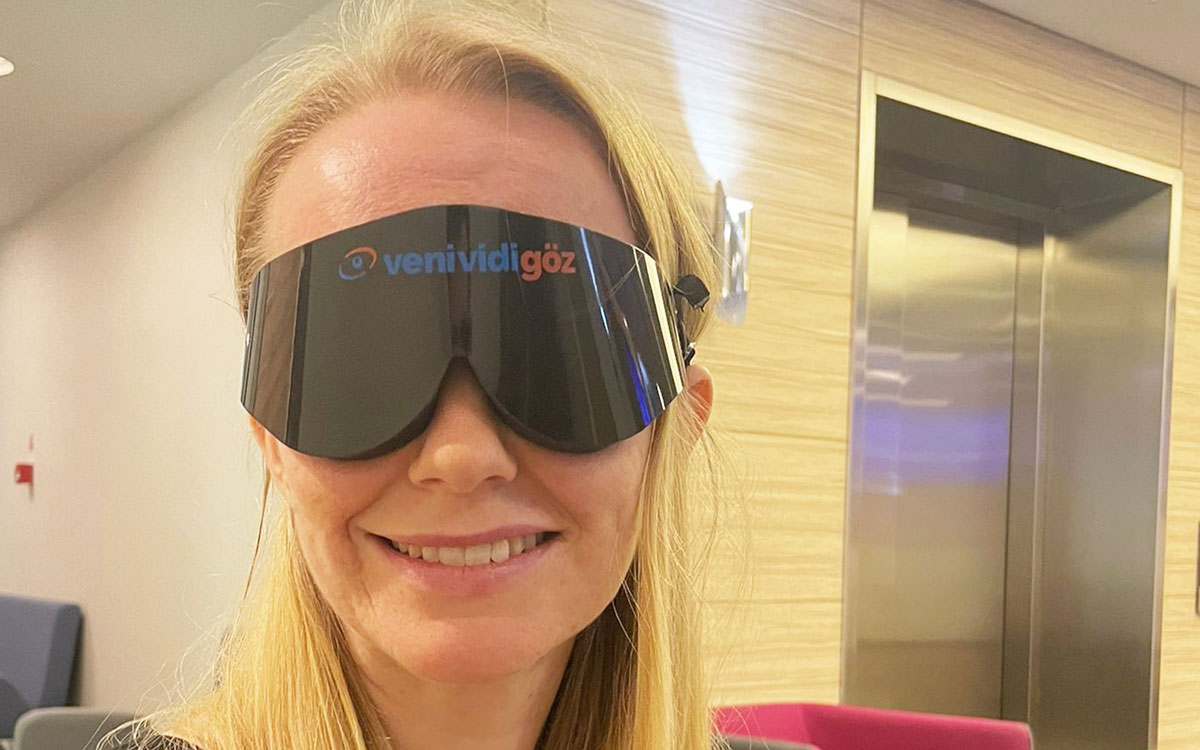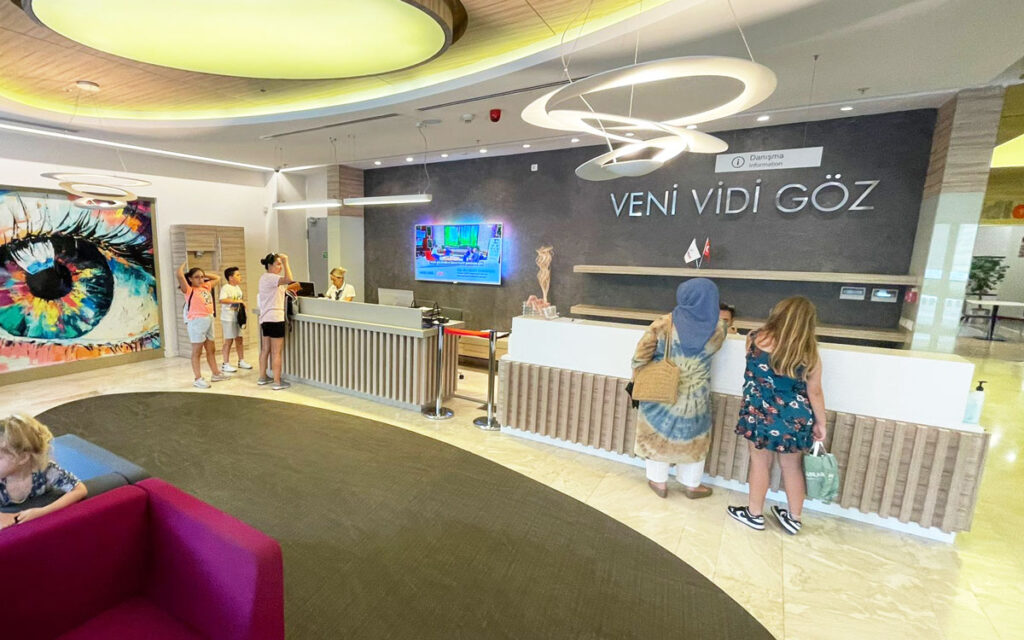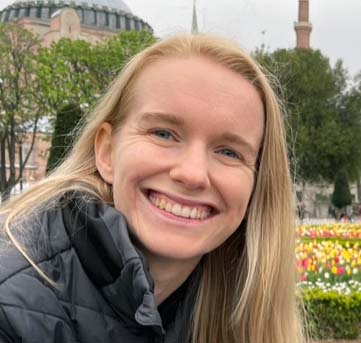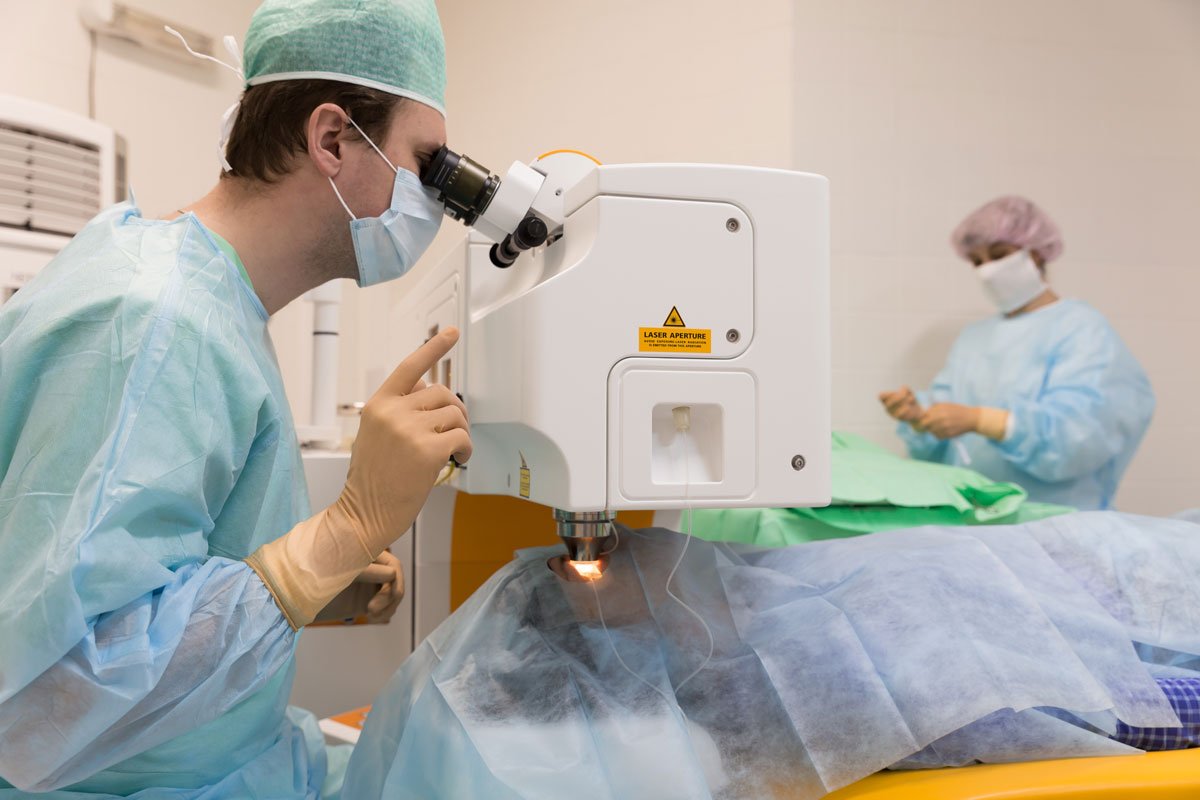Thinking of getting laser eye surgery in Turkey? Then you’ll be glad to know that it is a common procedure in Turkey.
In fact, Turkey performs the most eye surgeries out of any country, averaging around 40,000 operations per year. Most of these are foreign patients from Britain, Germany and the Middle East.
And these numbers are steadily rising because demand keeps increasing. While Turkey leads the world in eye surgery, other countries that are also popular for eye surgery are India, Malaysia, Singapore and Thailand.
Why is Turkey a popular destination for laser eye surgery?
You may be wondering why Turkey is such a popular destination for laser eye surgery (it’s actually not just eye surgery that is common there but all types of cosmetic surgery).
High-Quality Treatment at Affordable Prices
One of the main reasons why people choose Turkey for laser eye surgery is the affordability. Turkey has a lower cost of living compared to many other countries, which means that the cost of medical treatments is also lower. This allows clinics and hospitals to offer high-quality treatment at more affordable prices.
Experienced and Qualified Surgeons
Turkey also has a reputation for having some of the best eye surgeons in the world. Many of these surgeons have trained in Europe or the United States and have years of experience performing laser eye surgery.
Easy Access and Convenient Location
Turkey is easily accessible from many countries, which makes it a convenient location for medical tourism. Many international airports in Turkey have direct flights to major cities around the world.
Beautiful Destination
Turkey is a beautiful country with a rich history and culture. Patients who go to Turkey for surgery can stay on to enjoy a holiday once they have recovered.
Where should I go for Eye surgery in Turkey?
While most cities in Turkey have reputable eye clinics, the most popular places for laser eye surgery are Istanbul and Antalya on the Mediterranean coast. Izmir on the Aegean Sea, the capital city Ankara and Bursa are also popular cities for eye surgery in Turkey.
But first, you may be wondering what vision problems can be corrected by laser eye surgery.
Laser eye surgery corrects vision problems such as near-sightedness (myopia), farsightedness (hyperopia) and astigmatism. The procedure involves using a laser to reshape the cornea, which is the clear front part of the eye to improve how light enters the eye, resulting in clearer vision.
Myopia occurs when the shape of the eye causes light rays to bend inaccurately making objects faraway look blurry. Hyperopia occurs when objects close up look blurry, commonly affecting people’s reading ability.
Astigmatism happens when your cornea or lens is a different shape than normal. The main difference between astigmatism and myopia is the problems they cause, With myopia, you can still see objects close up, it’s only objects far away that are blurry. Whereas with astigmatism, usually both near and far objects are affected.
Types of laser eye surgery in Turkey
There are different types of laser eye surgery available in Turkey, and the 2 most common ones are LASIK and PRK.
LASIK (Laser Assisted In Situ Keratomileusis)
This is the most popular type of laser eye surgery, and it involves creating a flap in the cornea. The surgeon then uses a laser to remove a small piece of tissue form the cornea and then replaces the flap to allow it to heal.
LASIK is a quick and painless procedure, and most patients experience improved vision within a few days.
PRK No-Touch Laser (Photo Refractive Keratectomy)
This type of laser eye surgery involves removing the outer layer of the cornea before using a laser to reshape it. This surgery takes slightly longer to heal and you might be sensitive to light for a while after the surgery.
PRK is a good option for people with thin corneas or those who are not eligible for LASIK. It’s also the cheapest laser eye surgery in Turkey because it is a more straightforward surgery, not requiring a cut in the cornea.
Helpful tip
People can be concerned when their eyesight is blurry after PRK. In fact, your eyesight can be blurry for anything from 2 weeks to a month after surgery, so don’t be concerned if this happens to you. Ophthalmologists say that it can take up to 6 months for your eyes to completely heal after PRK.
Ophthalmologists will tell you that it is fine to go back to work the day after getting PRK, but many people experience severe pain the first 2 days after the surgery, so we wouldn’t recommend this. If you work on a computer, you may need to take even more time off work, as looking at a screen may be difficult if you experience side effects like blurry eyes.
Am I eligible for laser eye surgery in Turkey?
Turkey has the same eligibility criteria for eye surgery as other countries.
Not everyone is eligible for laser eye surgery, and it is crucial to undergo a comprehensive eye exam to determine if you are a suitable candidate. Generally, you may be eligible for laser eye surgery if:
- You are over 18 years old
- You have had stable vision for at least a year
- You have healthy eyes with no underlying conditions such as glaucoma or cataracts
- You have a prescription within a certain range, which varies depending on the type of laser eye surgery
The Process of Getting Laser Eye Surgery in Turkey
If you are considering getting laser eye surgery in Turkey, it is important to understand the process. I had eye surgery at Veni Vidi Göz (Veni Vidi Eye Clinic) in Istanbul, and I here is a breakdown of what you can expect during the initial consultation, procedure day, and post-procedure care in Turkey.
Initial Consultation
The first step in getting laser eye surgery in Turkey is to schedule an initial consultation with a reputable clinic. (Be sure to bring ID to the consultation, such as your passport, or if you live in Turkey, bring your identity card).
During this consultation, you will meet with an ophthalmologist who will check your eyes to see if you are a good candidate for the procedure. They will ask about your medical history and any eye conditions you may have. They may also perform a series of tests to measure the thickness of your cornea, the size of your pupils, and the shape of your eye.
After the evaluation, the ophthalmologist will discuss the different types of laser eye surgery available and recommend the best option for you. They will also explain the risks and benefits of the procedure and answer any questions you may have. If you decide to move forward with the surgery, you will schedule a date for the procedure.
Helpful tip
Things happen fast in Turkey! I went to Veni Vidi Göz in Istanbul and they offered to do my eye surgery the same day as the consultation. However, local friends suggested we book the surgery for the week after to give us time to prepare.
Procedure Day
On the day of your laser eye surgery, you will arrive at the clinic and may be asked to pay for the surgery up front (Veni Vidi Göz gave me the choice to pay before or after the surgery).
You will then be prepped for the procedure. A nurse will give you a cap and gown and a pair of slippers to put on.
The ophthalmologist will administer eye drops to numb your eyes and might offer a sedative to help you relax. You will then be positioned under the laser machine, and the procedure will begin.
The length of the procedure will depend on the type of laser eye surgery you are having. For example, LASIK typically takes about 15 minutes per eye, while PRK may be shorter. During the procedure, you will be awake but may feel some pressure or discomfort. However, the procedure is generally painless.
Helpful tip
The actual procedure took only 60 seconds per eye for me, with a few minutes of prep time before. The doctor told me to look at a green light during the surgery. He then rinsed my eyes with water and put in protective contact lenses.
Post-Procedure Care
After the procedure, you will need to arrange for someone to drive you home, as you may experience some blurry vision or sensitivity to light. You will also need to wear a protective shield over your eyes to stop you accidently rubbing or scratching your eyes. They usually give you the shield (which looks like space googles) at the clinic.
In the days and weeks following the procedure, you will need to follow a strict post-operative care routine to ensure your eyes heal properly. This will include using eye drops to prevent infection and reduce inflammation, avoiding water getting in your eyes, and attending follow-up appointments with the ophthalmologist.
Helpful tip
At Veni Vidi Göz, they arranged a check-up appointment 4 days after the surgery to remove my protective contact lenses, and then again a month later to check that my eyes were healing well.

Preparing for laser eye surgery
- On the day of your surgery, you will be asked to not wear contact lenses, makeup, perfume, or anything with a fragrance that could affect your eyes.
- Eye specialists suggest to arrive for your surgery on full stomach, so arrive hungry
- Your eyes will be sensitive to light for 2-3 days after the surgery, so you’ll need to have a dark room set up with everything you need (pain medication, audiobooks, etc).
- You won’t be able to look at a screen for at least a day or two after your surgery, so you will need to have a support person who can answer your text messages, communicate with the eye specialist if needed and give you your eye drops 4 times a day.
Helpful tip
Don’t be concerned if your eye lids swell up after the surgery. That happened to me and the pain was severe, but the eye specialist told me that is normal. You can also get watery eyes, redness, and blurry vision for the first few days (and even weeks). The important thing to remember is to keep taking your eye drops, and the swelling and pain will go eventually go away.
What eye drops do they prescribe in Turkey after laser eye surgery?
In Turkey, you will be most likely be prescribed 3 types of eye drops. This will vary depending on the clinic you visit and your type of eyes but here is what I was prescribed:
- Moxai eye drops (from the day of surgery you will use these 4 times a day for 7 days)
- Thealoz Duo eye drops (from the day of surgery you will uses these 4 times a day for 3 months)
- Lotemax eye drops (From the day of surgery you will use these 4 times a day for 1 month)
After laser eye surgery in Turkey: Looking after your eyes
This was the list of instructions I was given after laser eye surgery at Veni Vidi Göz:
- You need to avoid touching or rubbing your eyes for a week after surgery
- You should start using your eye drops 2 hours after the surgery.
- You need to wait at least 5 minutes between applying the different kinds of eye drops (basically just don’t put them in one after the other.)
- It’s really important not to get water in your eyes for 7 days after the surgery (you can have a shower, just don’t get your face wet). This includes avoiding swimming. If you have Lasik surgery, then you’ll need to avoid swimming for a whole month.
- Don’t apply eye makeup for 7 days after surgery
- You’ll need to wear sunglasses for a least 3 months whenever you go outside, even if it is cloudy. You don’t have to wear sunglasses inside, however; the idea is to protect your eyes from the sun’s UV rays.
Top-rated eye clinics in Istanbul
Dünyagöz Hospitals Group
Dünyagöz Hospitals Group is one of the largest and most well-known eye hospitals in Turkey, with multiple locations throughout the country.
They offer a wide range of eye surgeries, including LASIK and PRK.
Veni Vidi Eye Clinics
Veni Vidi Eye clinics have 14 locations across the country with 6 of them located in Istanbul. They are known by locals as a high-quality clinic.
They focus mainly on laser eye surgery and offer translation help for patients who speak English, German, Dutch, Russian, Swedish, Arabic, and Farsi.

Cost of Laser Eye Surgery in Turkey
If you're considering laser eye surgery, you may be wondering about the cost. As we mentioned, laser eye surgery in Turkey is generally more affordable than in many other countries, which is what makes it an attractive option for medical tourists.
Atter contacting several of the top eye clinics in Istanbul, I was given the prices in the table below.
| Procedure | Estimated Cost in 2023 (for both eyes) |
| LASIK | $1600 USD (45,800 TL) |
| PRK | $1400 USD (37,200 TL) |
Helpful tip
I had a local friend who was given a lower estimate, so after some bargaining, the clinic agreed to match the price they gave to my friend. I ended up paying $940 USD for PRK (25,000 TL) all up, including the initial consultation and the cornea and topography tests (so it’s worth asking for a better price).
If you’re coming from overseas, some clinics offer comprehensive packages that include transportation, accommodation, and other services.
Potential Risks and Complications
As with any surgical procedure, there are potential risks and complications associated with laser eye surgery. Most people we talk to about laser eye surgery are immediately curious about the safety of it. However, the vast majority of patients experience no significant problems and are very satisfied with the results of their surgery.
Some of the potential risks and complications associated with laser eye surgery include:
Dry eyes: After the procedure, you may experience dry eyes, which can cause discomfort and blurry vision. This can be managed with eye drops and usually resolves within a few weeks.
Overcorrection or undercorrection: In some cases, the procedure may result in overcorrection or undercorrection, which can lead to the need for additional surgery or the continued need for corrective lenses.
Glare, halos, and double vision: Some patients may experience glare, halos, or double vision, particularly at night. This can be temporary or permanent and may be more common in patients with larger pupils.
Infection: Although rare, infection is a potential risk of any surgical procedure. Your surgeon will take precautions to minimize this risk, such as using sterile equipment and prescribing antibiotics.
Most people are worried about vision loss, but it hardly ever happens as a result of the surgery itself. It is only a concern if infection sets in, which can be avoided by looking after your eyes and using eye drops regularly.
Success Rates of Laser Eye Surgery in Turkey
In Turkey, the success rate of laser eye surgery is high. The success rate of laser eye surgery can vary depending on a variety of factors, like the specific type of surgery being performed, the skill and experience of the surgeon, and the overall health of your eyes.
To ensure the highest chances of success, be sure to carefully research and choose a reputable and experienced surgeon and clinic.
You can read reviews, check the surgeon's credentials, and ask for recommendations from locals who have undergone the procedure.
We highly recommend Turkey for getting laser eye surgery. With affordable prices, experienced surgeons, easy access, and a beautiful location, it makes sense why so many people choose Turkey for their medical treatments.
Bye-bye glasses!
Disclaimer
We do our best to provide the most accurate and helpful information, but information, advice and procedures can vary. Your experience could be different. For the most up to date information check with your local family doctor or eye health professional.

I’m a teacher and writer living abroad. I love languages, drinking lots of çay (tea) with friends, experiencing different cultures and going on adventures with my family.




